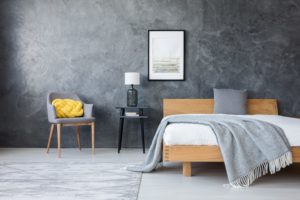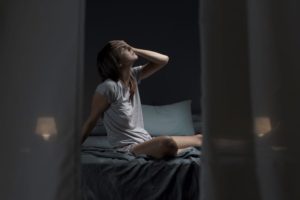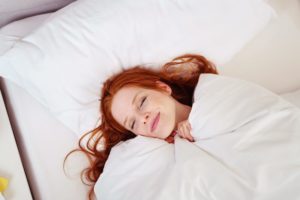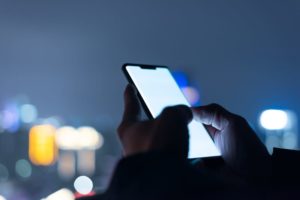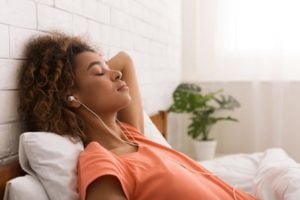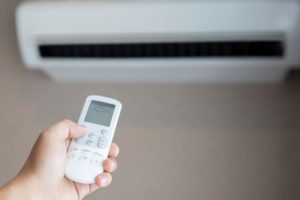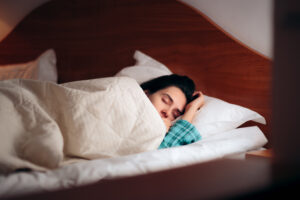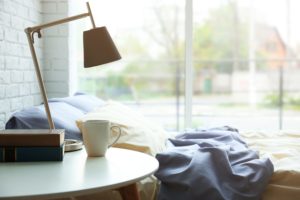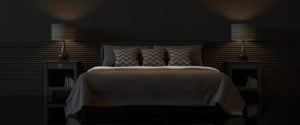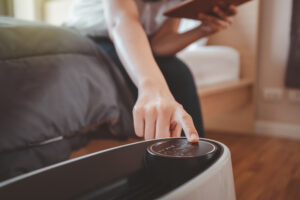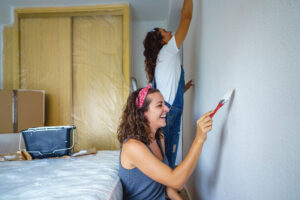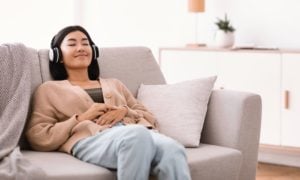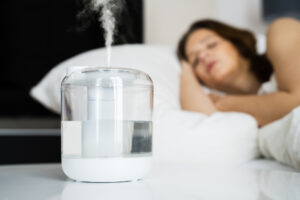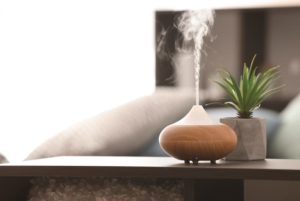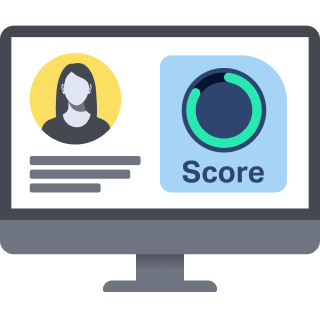Technology in the Bedroom
Technology in the bedroom is a growing problem affecting people of all ages. Recent studies have found that around 75% of children and 70% of adults use electronic devices in their bedroom or in bed.
Unfortunately, using electronic devices at night can interfere with both the quantity and quality of sleep. To counteract this, an increasing number of sleep experts recommend keeping technology out of the bedroom.
While setting up a technology-free bedroom may seem like a big change, its benefits can be significant. Our tips walk you through the practical steps needed to keep electronics from interfering with your or your child’s sleep.
Benefits of a Technology-Free Bedroom
A technology-free bedroom can enhance sleep by preventing multiple problems associated with using electronic devices at night:
- Using devices tends to delay the time when you actually go to sleep, reducing sleep duration.
- Technology affects the brain, stimulating your mind and making it harder to fall asleep.
- Sounds and blinking lights can cause unwanted awakenings when sleeping next to electronics.
- The blue light emitted by many devices disrupts the natural production of melatonin, a hormone that facilitates sleep and can throw off your circadian rhythm.
Even if you put your cell phone or other devices into silent mode, having them in the bedroom creates the temptation to look at them if you wake up during the night, potentially thwarting your ability to fall back asleep.
How Do You Create a Technology-Free Bedroom?
Given how ingrained technology is in modern society, creating technology-free spaces may feel like a daunting task. But several straightforward steps can make this process simpler and help you get used to a new bedroom environment that’s more conducive to sleep.
Consider the Types of Technology You Have
Two decades ago, the primary technology in American homes was a television. Today, most households still have a TV and have added other devices like smartphones and computers. A 2016 Pew Research survey found that the median U.S. household has five electronic devices, and 18% of homes are hyper-connected, containing 10 or more devices.
As a result, the first step is to take an inventory of the technology in your home and bedroom, including these devices:
- Televisions
- Cell phones
- Tablets
- Desktop and laptop computers
- Video game consoles
- E-readers
- Smartwatches
- Smart home hubs like an Amazon Echo or Google Home device
The way that you interact with each of these devices can vary, and they also have different timetables for charging. As a result, some may be easier than others to remove from your bedroom, but having a clear count of your home’s electronics is a first step toward making your bedroom technology-free.
Tips for Making Your Bedroom Technology-Free
The most obvious way to foster a technology-free sleep environment is to simply remove your devices from the bedroom. If that sounds like a big task, these tips can help you transition to and make the most of this change.
- Create a dedicated space for electronics: Find a spot outside the bedroom where you can park all of your electronics during the night. This is an ideal place to put chargers so that all your devices will have a full battery in the morning.
- Develop a new bedtime routine: For children and adults, a steady routine can reinforce healthy habits, so design a fresh bedtime routine that doesn’t involve having the TV on or checking your messages. Instead, include steps that are practical, like putting on pajamas, and relaxing, like stretching or reading in dim light.
- Set consistent “screens off” and “lights out” times: Have a consistent deadline for when you’re going to shut off your electronics and when you’re going to actually turn off the lights to fall asleep. Having a firm “screens off” time keeps you from staying up to check just one more email or watch one more episode. It also helps you get used to a set period without screen time and promotes a regular sleep schedule.
- Keep something to read nearby: Reducing nightly screen time is a great way to recapture the joy of reading a printed book or magazine. Keep something that you enjoy reading on your nightstand so that you’re less likely to have FOMO (fear of missing out) from being away from your electronics.
- Don’t work in bed: The best mattress is one reserved for only for sex and sleep. This allows your brain to associate being in bed with those activities, minimizing the urge to bring technology into bed with you.
- Use a basic alarm clock: If you use your phone as an alarm, a basic alarm clock can take its place and make sure you wake up on time. Most alarm clocks have settings for low brightness to help keep your bedroom dark.
- Consider a white noise machine: If you use your phone to play soothing sounds at night, a white noise machine can serve the same purpose but without putting email and messages right at your fingertips.
- Learn relaxation techniques: If you have FOMO when you’re away from your phone, relaxation techniques like deep breathing or mindfulness meditation can help calm your mind and at the same time put you in a good frame of mind to doze off.
- Set boundaries with friends, family, and work: Many people think they need to sleep with their phone nearby because they may have to immediately respond to something important. Unfortunately, this perceived need to be connected 24/7 means you’re constantly at risk of sleep disruptions during the night. To get away from the “always-on” mindset, tell friends, family, and work colleagues that you won’t be accessible during the late evening and early morning. Setting this boundary gives you the freedom to make your bedroom technology-free without worrying about missed messages, calls, or emails.
- Reward yourself: If removing technology from your bedroom feels like punishment, find a way to turn it into a positive, rewarding yourself for certain milestones, such as one week, one month, or one year of having a technology-free sleep environment.
Depending on your situation, you might not need to implement all of these steps. Instead, try out the tips that best suit your needs so that you can eliminate technology from your bedroom and strengthen your sleep hygiene in the process.
Tips if You Can’t Make Your Bedroom Technology-Free
After taking stock of your electronics, you may decide that it’s not possible for you to go completely technology-free in your bedroom. In that case, consider the following tips to minimize the impact of electronics on your sleep:
- Pare down the number of devices in your bedroom: Even if you can’t get all the devices out of your bedroom, try to keep out as many as you can.
- Avoid using them for an hour before bedtime: Keeping technology in your bedroom doesn’t mean that you have to use it. As best as possible, avoid using electronics for an hour or more before you plan to go to bed.
- Put devices in a drawer: By not having a phone or tablet constantly in sight, you may be less tempted to check it when you want to be relaxing or sleeping.
- Silence notifications: Put electronics in airplane mode and turn off notifications so that you aren’t bothered by constant vibrations or flashing lights.
- Resist the urge to check devices when you wake up at night: If you find yourself awake during the night, give yourself time to fall back asleep and try not to immediately check your phone, even if it’s just to see the time. Looking at your phone or tablet can create light exposure and trigger your mind to a waking state that may prevent you from getting back to bed.
- Turn down the brightness: Light from electronics can affect your sleep, and turning down your screen’s brightness to the lowest setting may cut down on its impact .
- Use a night mode: Many devices have a night mode that reduces the amount of blue light they emit. This feature may decrease the effect that using the device has on your melatonin production and circadian rhythm.
- Try blue light glasses: Specialty glasses work to block out blue light before it reaches your eyes, and some research suggests that it can reduce the negative impact of blue light .
- Automatically disconnect using specialized apps: Some apps and programs for cell phones, tablets, and computers allow you to program a time when the device automatically goes into airplane mode, which can help reinforce a schedule when you stop using electronics at night.
- Go old school: Folks who are “on-call” through the night such as those who work in healthcare, 24-hour operations, technology sectors, or transportation, can consider installing a landline. This will keep screens away while still remaining accessible.
References
3 Sources
-
Pew Research Center. (2017, May 25). A third of Americans live in a household with three or more smartphones., Retrieved October 27, 2020, from
https://www.pewresearch.org/fact-tank/2017/05/25/a-third-of-americans-live-in-a-household-with-three-or-more-smartphones/ -
Blume, C., Garbazza, C., & Spitschan, M. (2019). Effects of light on human circadian rhythms, sleep and mood. Somnologie : Schlafforschung und Schlafmedizin = Somnology : sleep research and sleep medicine, 23(3), 147–156.
https://pubmed.ncbi.nlm.nih.gov/31534436/ -
Wahl, S., Engelhardt, M., Schaupp, P., Lappe, C., & Ivanov, I. V. (2019). The inner clock-Blue light sets the human rhythm. Journal of biophotonics, 12(12), e201900102.
https://pubmed.ncbi.nlm.nih.gov/31433569/


